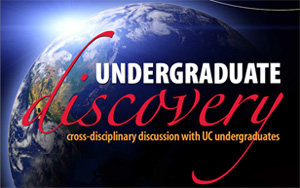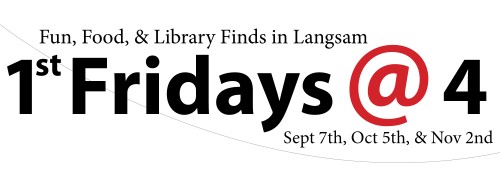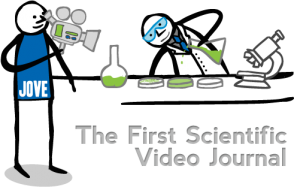 This summer, Langsam Library was a busy place as over 4,000 incoming students participating in UC New Student Orientation visited and learned about all that UC Libraries has to offer. While here, they engaged in activities designed to be entertaining while at the same time informative about the various research resources, assistance, and library services they can take advantage of when they return in the fall.
This summer, Langsam Library was a busy place as over 4,000 incoming students participating in UC New Student Orientation visited and learned about all that UC Libraries has to offer. While here, they engaged in activities designed to be entertaining while at the same time informative about the various research resources, assistance, and library services they can take advantage of when they return in the fall.
Tag Archives: Research
Student Project Shows Value of Libraries
Librarians are used to getting any kind of questions and requests at the InfoCommons. However we were pleasantly surprised when one day student Ashley Kraus approached us with a question about UC Libraries. She wanted to get all kinds of facts and numbers about libraries. Ashley explained that she needed to do a visual project for a class assignment. We were delighted that with any topic in the world to choose from, Ashley chose to demonstrate the value of libraries. Following is more about her work. Continue reading
Undergraduate Discovery: Cross-Disciplinary Discussion with UC Undergraduates
 In partnership with UC Libraries, the Office of Undergraduate Research, Scholarly Endeavors & Creative Practice (URSC) presents a new undergraduate student lecture series on Tuesday, March 12, 4-6 p.m., Langsam Library 4th floor (near Triceracopter). Scheduled once per semester, Undergraduate Discovery: Cross-Disciplinary Discussion with UC Undergraduates will feature recipients of the URSC Student of the Month Awards for spring 2013 semester.
In partnership with UC Libraries, the Office of Undergraduate Research, Scholarly Endeavors & Creative Practice (URSC) presents a new undergraduate student lecture series on Tuesday, March 12, 4-6 p.m., Langsam Library 4th floor (near Triceracopter). Scheduled once per semester, Undergraduate Discovery: Cross-Disciplinary Discussion with UC Undergraduates will feature recipients of the URSC Student of the Month Awards for spring 2013 semester.
Database Provides Access to Newspapers Published by or for African Americans
Through a partnership with the Taft Collections Committee, UC Libraries has added an important primary source for the study of African American history, life, and culture: African American Newspapers, 1827-1998 Connect . Continue reading
Procrastination? Trouble finding just what you need? We have a book for that!
During the Information Literacy Awareness Month we used chalkboards in Langsam to learn more about our patrons and how they use the library and information sources. A couple of weeks ago we asked you to tell us what your biggest challenge is when doing research.
We got a variety of responses ranging from difficulty getting organized and pulling yourself away from Facebook or Pinterest to problems related to putting the results on paper and getting the research findings published.
 |
 |
 |
 |
To help our patrons to address some of these problems we put together a virtual exhibit Tips for Effective and Efficient Library Research. The exhibit features current e-books and print books from the UC Libraries’ collections related to various aspects of library research projects, from finding and evaluating sources to presenting your research results and getting them published. It also includes resources on successful management of your research projects.
While the books on finding sources are targeted primarily to undergraduates, books in other categories might be useful to broader audiences, including graduate and doctoral students and faculty.
We hope to expand this exhibit in the future by adding more online resources in a variety of formats. Please help us by using the Comments link to to share tutotials, books, and websites that helped you to improve your research skills. Let us know what libraries can do to help you to find, evaluate, and use information more effectively.
CampusGuides Access Slow
Please note that our vendor for CampusGuides, Springshare, is experiencing issues with their servers that are causing our Subject/Research Guides to load very slowly if at all. Springshare is working to remedy the problem as soon as possible.
You can keep up with updates via their Twitter feed: https://twitter.com/springshare
1st Fridays at 4
 First Year Students, join us on September 7, 4:00 to 5:30pm on the 4th floor of Langsam Library by the Triceracopter sculpture, for the inaugural “1st Fridays @ 4.” Continue reading
First Year Students, join us on September 7, 4:00 to 5:30pm on the 4th floor of Langsam Library by the Triceracopter sculpture, for the inaugural “1st Fridays @ 4.” Continue reading
Read UCLibraryLINKS to Learn about Library Online Resources
 Read UCLibraryLINKS, a bulletin regarding electronic library resources, collections and services. Continue reading
Read UCLibraryLINKS, a bulletin regarding electronic library resources, collections and services. Continue reading
Discover Experimental Techniques: Journal of Visualized Experiments (JOVE)

Journal of Visualized Experiments
Through a shared subscription of the College of Engineering and Applied Science Library and Health Sciences Library, UC researchers now have have access to the online Journal of Visualized Experiments (JOVE). JOVE consists of “video articles” that capture biological, medical, chemical, and physical research and experimental techniques.
Our subscription includes 3 sections:
- General http://www.jove.com/general
- Bioengineering http://www.jove.com/bioengineering
- Neuroscience http://www.jove.com/neuro
Travel Writings in the Archives and Rare Books Library
By Janice Schulz
Among the strengths in our Rare Books collection is our diverse assortment of travel writings ranging from the reports of explorers to stories of leisure travel. Travel writings can offer unique perspectives to historical research about a region, providing accounts of outsiders without local views, agendas, and prejudices. They can also be valuable for comparative histories, showing change over time and varying cultural viewpoints. Among the many research areas that travel writings can support are social, ethnographic, geological, botanical, and architectural issues. Continue reading
